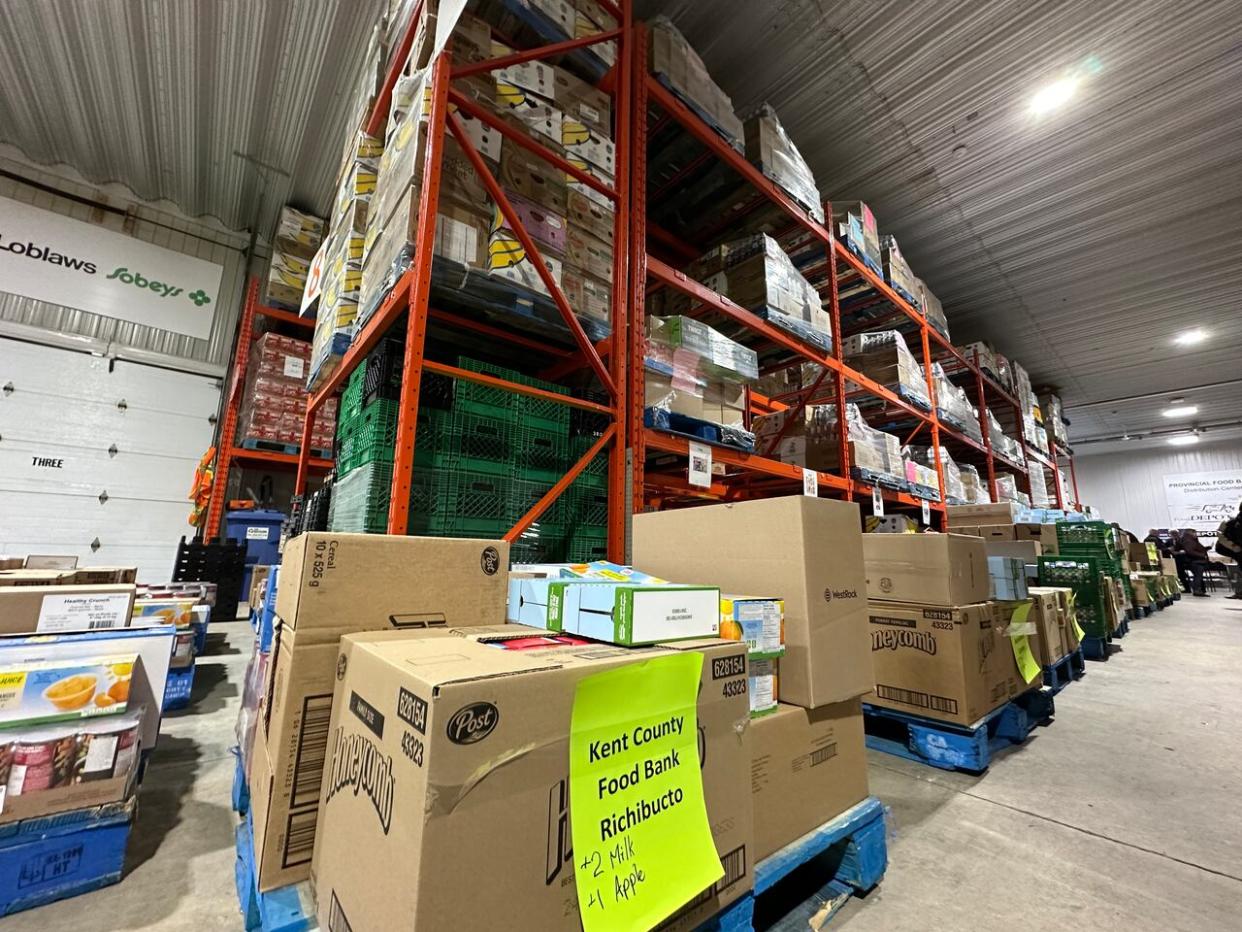Facing higher demand, food banks get more provincial funding

The New Brunswick government will give $1 million to an organization that supplies food banks and soup kitchens around the province.
That's on top of $1 million given to Food Depot Alimentaire just before Christmas. The organization distributes food to 65 food banks and soup kitchens across the province from its Moncton warehouse.
Stéphane Sirois, Food Depot Alimentaire's executive director, said it will be used to buy fresh food as most of what gets donated is non-perishable dry and canned goods.
"This allows us to purchase the meat, fish, fruits, vegetables, fresh stuff ... that the food banks and the community kitchens need," Sirois said. "And so that ensures that they're not turning anyone away."

Stéphane Sirois, executive director of Food Depot Alimentaire, says the money will be used to buy fresh food such as meat, fish, vegetables, fruit and eggs, since most donations are non-perishable goods. (Shane Magee/CBC)
Sirois said the organization's food purchasing budget this year is about $3.5 million so the $1 million from the province will help cover a significant amount of that budget.
Sirois said food banks reported a 35 per cent increase in visits last year compared to 2022 with the number of people served up by 42 per cent, which means more families are using them.
Soup kitchens also saw a 17 per cent increase over 2022, Sirois said.

New Brunswick Health Minister Bruce Fitch announced the province will contribute another $1 million later this year to Food Depot Alimentaire. (Shane Magee/CBC)
The funding was announced at the organization's warehouse on Monday by New Brunswick Health Minister Bruce Fitch.
"It's true in this province, across the country, it's been a difficult few years for those that struggle with hunger and food insecurity," Fitch said. "Sadly, in New Brunswick, visits to our food banks and community kitchens continue to rise."
The $1 million announced Monday will be given in March. The province had given $1 million just before the holidays on top of the $2 million it contributed last year.
Sirois said the profile of those experiencing food insecurity is changing.
"Families with both parents working and homeowners are increasingly visiting food banks and community kitchens," Sirois said.
After talking about the increases recorded last year, Sirois said 2024 isn't expected to be any different.
"We're still seeing some sharp increases."


